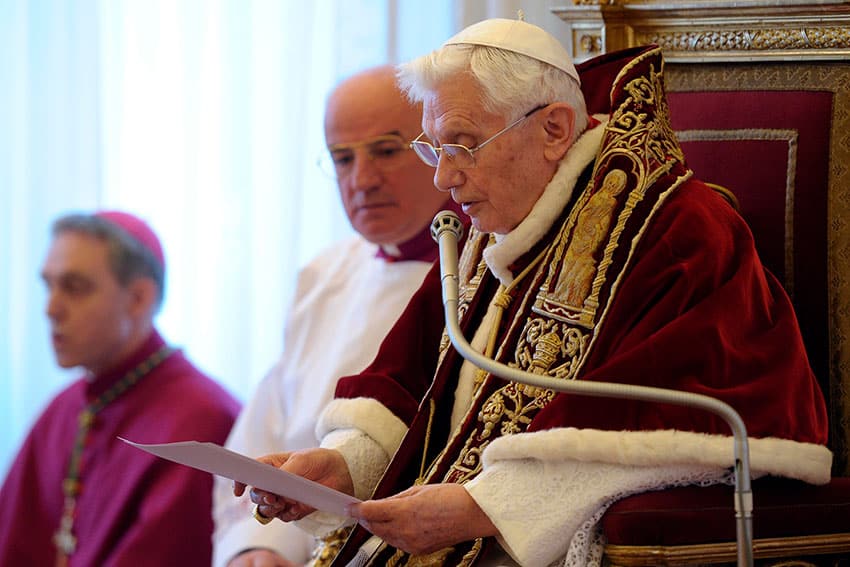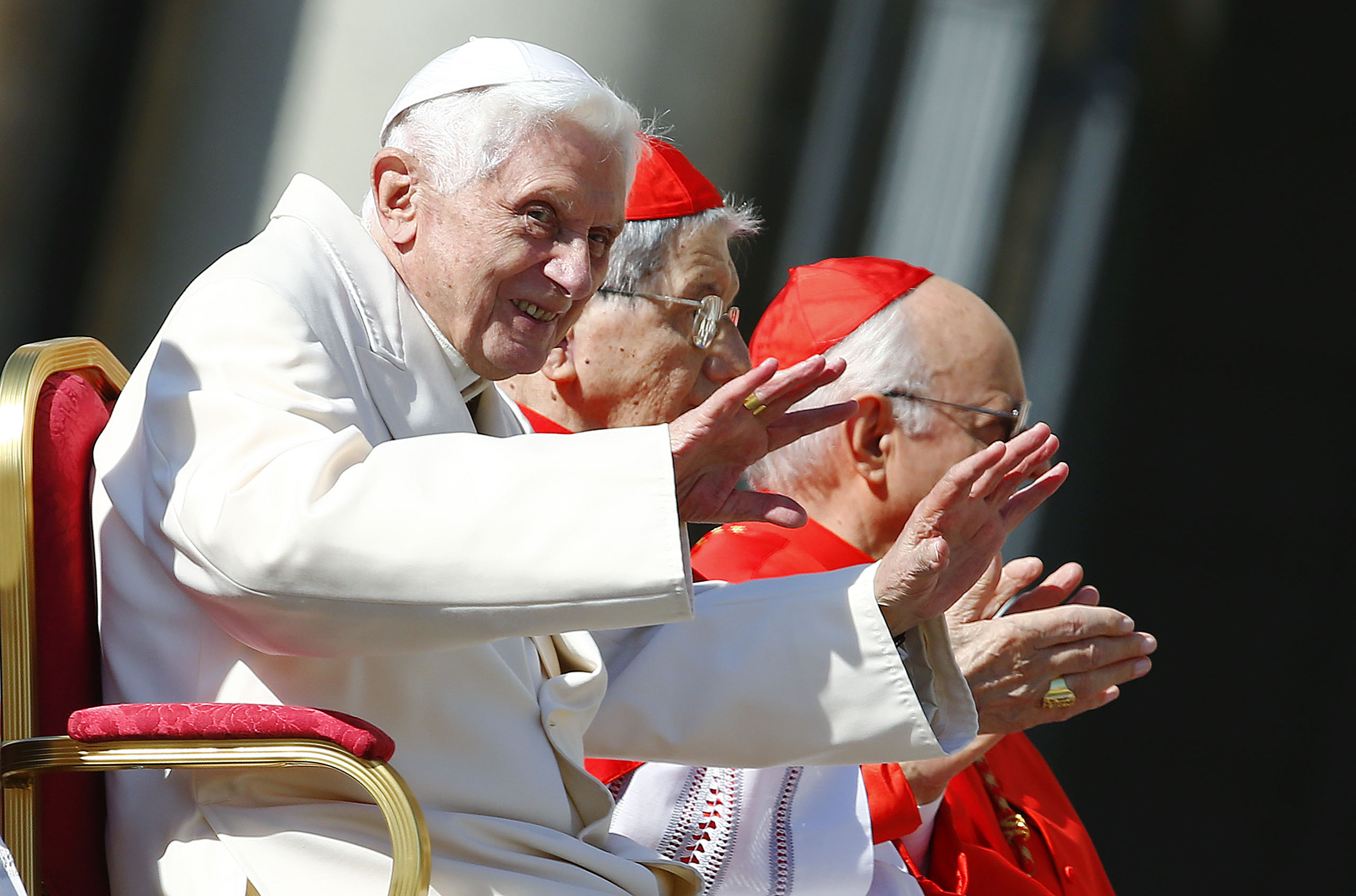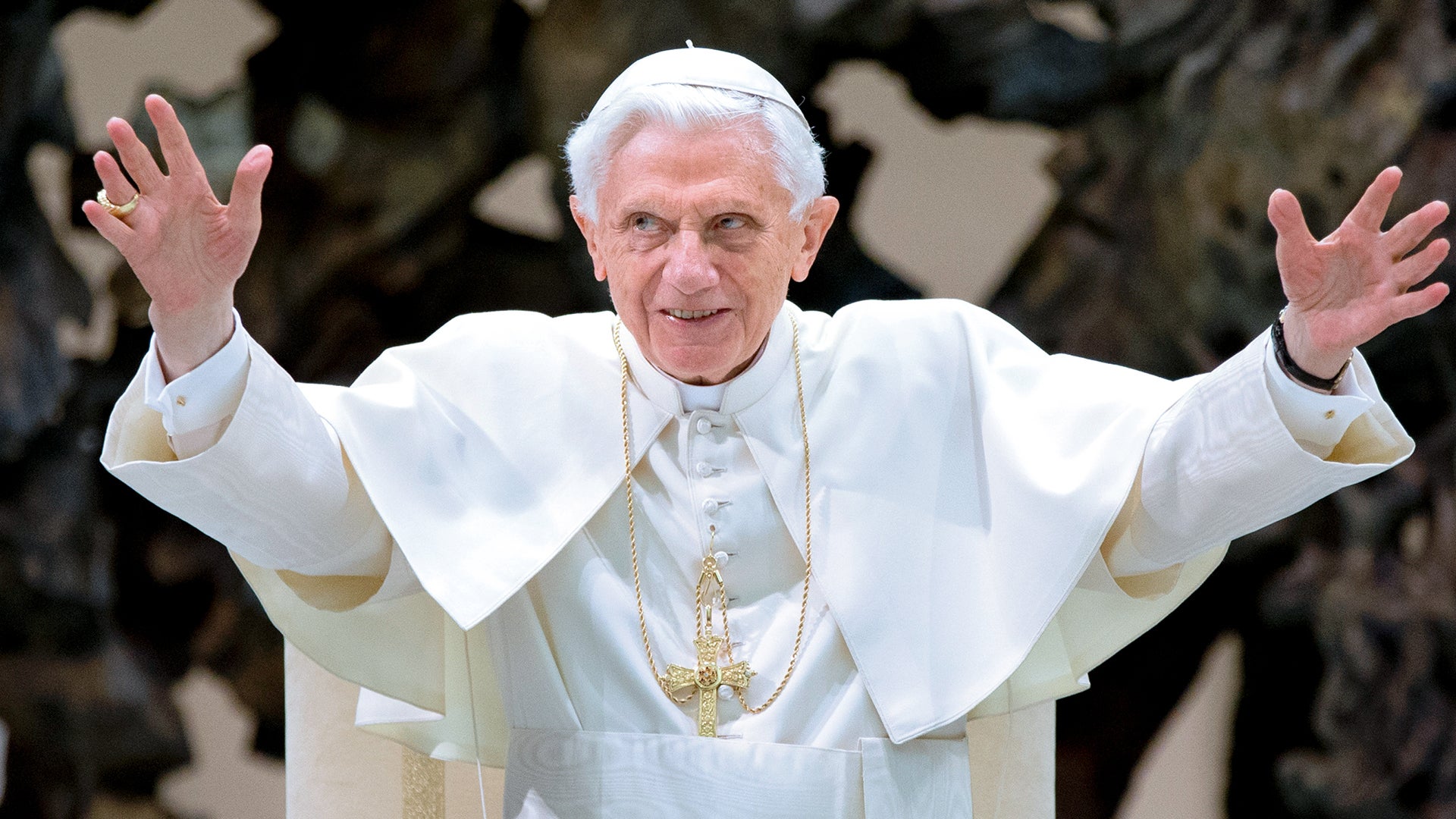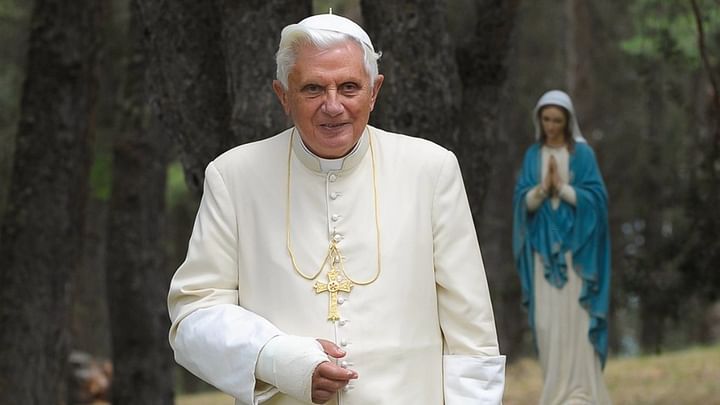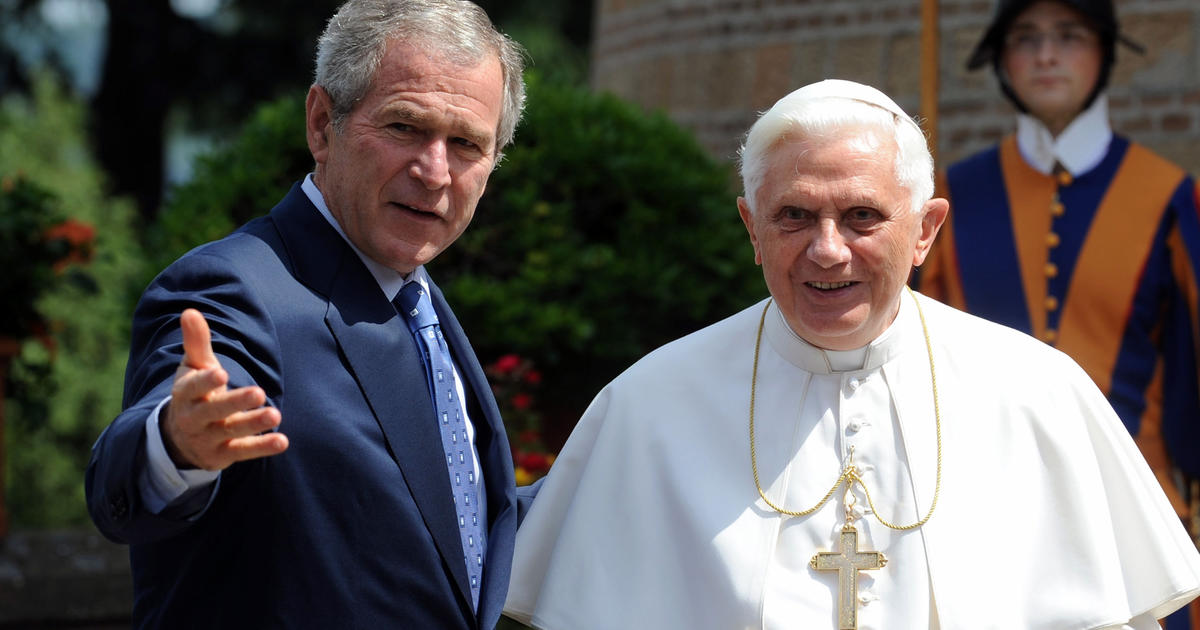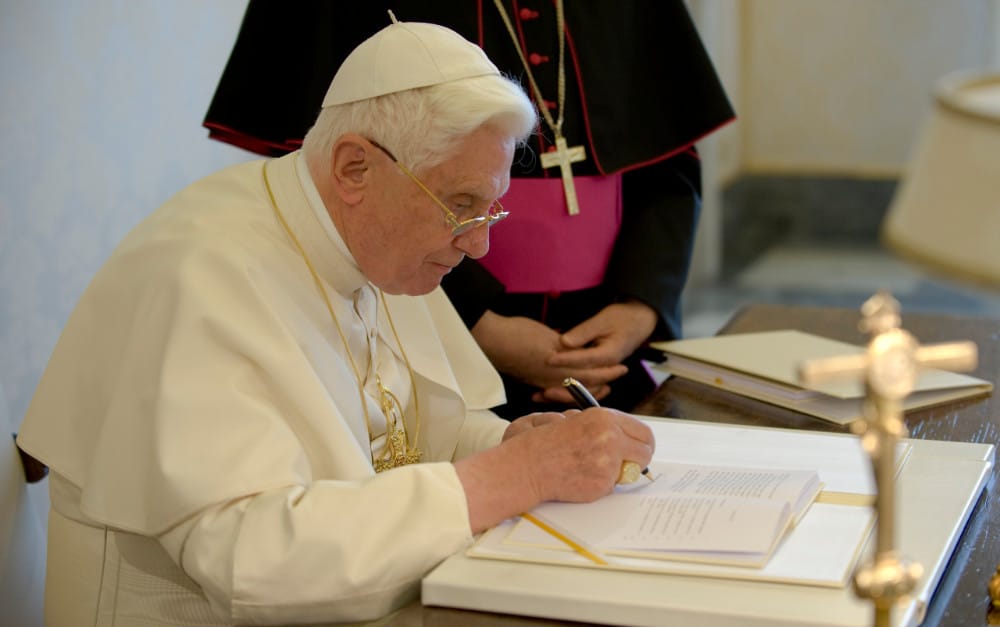World
Former Pope Benedict XVI Dead at Age 95

Former Pope Benedict XVI, the first pontiff to resign in 600 years, died on Saturday at the age of 95 in the Vatican, according to a Holy See spokesman. “With sadness, I inform you that Pope Emeritus Benedict XVI died today at 9.34 a.m. in the Mater Ecclesiae Monastery in the Vatican,” a spokesman said in a written statement.
According to the Vatican, Pope Francis will preside over his predecessor’s funeral on January 5.
Benedict, the first German pope in 1,000 years, stepped down in 2013 due to failing health, leaving behind a Catholic Church beleaguered by sexual abuse scandals, mired in mismanagement, and divided between conservatives and progressives.
He had good relations with his successor, but his continued presence inside the Vatican after he stepped down polarized the Church ideologically even more.
Concerned about Pope Francis‘s progressive moves, conservatives looked to Benedict as the defender of tradition. Several times, he had to tell nostalgic visitors, “There is only one Pope, and his name is Francis.”
Pope Benedict, a pianist and formidable theologian, was a weak leader who struggled to impose himself on the opaque Vatican bureaucracy and stumbled from crisis to crisis during his eight-year reign.
He repeatedly apologized for the Church’s failure to root out clergy sexual abuse of children, and despite being the first pope to take serious action against abuse, his efforts failed to halt a rapid decline in church attendance in the West, particularly in Europe.
Pope Benedict XVI Resigns
In 2022, an independent report in his native Germany claimed Benedict failed to act in four abuse cases while serving as Archbishop of Munich between 1977 and 1982. After being shaken by the report, he apologized in an emotional personal letter and asked for forgiveness.
In a detailed rebuttal, his lawyers argued that he was not directly to blame.
Victims’ groups claimed that the evasive response squandered an opportunity arising from a scandal that shook the Church worldwide.
On February 11, 2013, Benedict shocked the world by announcing in Latin that he was resigning, telling cardinals that he was too old and frail to lead an institution with over 1.3 billion members.
It was always going to be difficult following the death of his charismatic predecessor, Pope John Paul II, in 2005, and Benedict admitted to difficulties in an emotional farewell address.
“There were happy and light moments, but there were also difficult moments.” “There were moments… when the seas were rough and the wind blew against us, and it seemed as if the Lord was sleeping,” Benedict said to a crowd of more than 150,000 people at his last general audience.
On February 28, 2013, Benedict took up residence at the papal summer retreat at Castelgandolfo, south of Rome, while cardinals from around the world gathered in the Vatican to elect his successor.
Pope Francis’ election
Prior to formally stepping down, Benedict and his aides chose the title “pope emeritus” and decided he would continue to wear a white cassock, albeit a slightly modified version. Some in the Church objected, claiming that he had tied his successor’s hands.
They said he should have dressed like a cardinal or a priest in red or black.
Following Pope Francis’ election on March 13, Benedict moved into a converted convent on Vatican grounds to spend his final years praying, reading, playing the piano, and receiving visitors.
He appeared in public only on rare occasions, usually for major Church ceremonies, though he paid an emotional visit to his ailing elder brother Georg, a priest, in Bavaria in June 2020. Georg died soon after, at the age of 96.
Benedict did not keep his promise to remain “hidden from the world,” and his writings in retirement occasionally caused controversy and confusion.
In a 2019 essay for a German Church magazine, he blamed the crisis over priest abuse of children on the 1960s sexual revolution, what he called homosexual cliques in seminaries, and a general collapse in morality.
Critics accused him of attempting to shift blame away from the institutional Church’s hierarchy. Conservatives, however, rejoiced, and rallied to his defense.
Benedict and the cardinal
The ambiguity surrounding Benedict’s role reached a head in January 2020, when it was revealed that he was involved in a book written by a conservative cardinal that some saw as an attempt to influence a document Pope Francis was preparing.
As a result, Francis fired Archbishop Georg Ganswein, Benedict’s secretary, from a top Vatican position. Many people believed Ganswein misled Benedict, the cardinal, or both as a middleman between Benedict and the cardinal.
Some Vatican officials have called for clear rules regarding the status of any future pontiff who resigns as a result of the incident.
Francis has stated that if he were to resign, he would prefer the title Emeritus Bishop of Rome, as suggested by some. He has also stated that he will not live in the Vatican but rather in a Rome home for retired priests.
Benedict, an uncompromising conservative on social and theological issues, literally cloaked himself in tradition during his papacy, frequently donning fur-trimmed capes and red shoes in public appearances — a stark contrast to his successor’s more humble, down-to-earth style.
He enraged Muslims by implying that Islam is inherently violent, and he enraged Jews by rehabilitating a Holocaust denier. The gaffes and blunders reached a climax in 2012, when leaked documents revealed corruption, intrigue, and feuding within the Vatican.
As a result of the “Vatileaks” case, his butler, Paolo Gabriele, was arrested and convicted of passing secret documents to a journalist. Benedict later forgave him. Gabriele was hired at a Vatican-owned hospital and died there in 2020.
Gay Clergy Lobby
The media speculated that the saga, which exposed allegations of a gay clergy lobby operating against the pope, might have put pressure on him to resign. Benedict insisted on stepping down because he could no longer bear the full weight of the papacy, including the exhausting international travel required by the job.
In a book-length interview published in 2016, he acknowledged his flaws but stated that his papacy was not a failure.
“Perhaps one of my weaknesses is a lack of resolve in governing and making decisions. In reality, I am more of a professor, someone who reflects and meditates on spiritual issues,” Benedict stated in the book “Last Testament,” written by German journalist Peter Seewald.
“Practical government is not my strong point and that is certainly a weakness. But I don’t consider myself a failure.” On April 16, 1927, in the southern German village of Marktl, close to Austria, Joseph Aloisius Ratzinger was born.
During World War II, he was forcibly enrolled in the Hitler Youth and briefly held as a prisoner of war by the Allies, but he was never a member of the Nazi party.
“Neither Ratzinger nor any member of his family were National Socialists,” wrote John Allen, a leading Church expert, in a biography of Benedict.
Ratzinger was ordained as a priest in 1951 and rose to prominence as a liberal theological adviser at the Second Vatican Council, which convened in 1962 and resulted in profound Church reform.
God’s Rottweiler
The Marxism and atheism of the 1968 student protests across Europe, on the other hand, prompted him to become more conservative in order to defend the faith against growing secularism.
After stints as a theology professor and then Archbishop of Munich, Ratzinger was appointed in 1981 to head the Congregation for the Doctrine of the Faith (CDF), the successor office to the Inquisition, where he earned the epithet “God’s Rottweiler”.
After a period of experimentation, he and Pope John Paul agreed that traditional doctrine needed to be restored in the Church.
Ratzinger first addressed the popular “liberation theology” in Latin America, ordering the one-year silence of Brazilian friar Leonardo Boff in 1985, whose writings were criticized for using Marxist ideas.
Ratzinger applied pressure on theologians, primarily in Asia, who saw non-Christian religions as part of God’s plan for humanity in the 1990s.
Ratzinger’s office condemned “radical feminism” in a 2004 document as an ideology that undermined the family and obscured the natural differences between men and women.
Benedict sought to show the world the gentler side of his nature as Pope from 2005, but he never achieved the “rock star” status of John Paul or appeared particularly at ease in the job.
Child abuse scandals dogged him for the majority of his pontificate. He called for an official investigation into abuse in Ireland, which resulted in the resignation of several bishops.
During his pontificate, however, the Vatican’s relations with once-devoutly Catholic Ireland deteriorated. In 2011, Dublin closed its embassy to the Holy See.
Profound consternation
Victims demanded that the International Criminal Court investigate him. The Vatican ruled that he could not be held accountable for the crimes of others, and the court declined to hear the case.
In September 2013, he denied covering up the scandals. “As for your mentioning moral abuse of minors by priests, as you know, I can only acknowledge it with profound consternation.
“However, I never attempted to conceal these facts,” he wrote in a letter to Italian author Piergiorgio Odifreddi.
Benedict visited his homeland three times as Pope, confronting its dark past at the Nazi death camp at Auschwitz in Poland. As a “son of Germany,” he prayed and asked why God was silent when 1.5 million people, mostly Jews, died there during World War II.
One of his trips to Germany triggered the first major crisis of his pontificate. In a 2006 university lecture, he quoted a 14th century Byzantine emperor as saying that Islam had only brought evil to the world, which was spread by the sword.
Following protests that included attacks on churches in the Middle East and the killing of a nun in Somalia, the pope apologized for any confusion his speech had caused.
Later that year, in a move widely perceived as conciliatory, he made a historic trip to predominantly Muslim Turkey, praying in Istanbul’s Blue Mosque with the city’s grand mufti.
Offending the Jews
In 2008, the pope visited the United States, where he apologized for the sexual abuse scandal, promised that pedophile priests would be expelled, and consoled abuse victims. But Benedict made a series of errors in 2009.
After lifting the excommunication of four traditionalist bishops, one of whom was a notorious Holocaust denier, the Jewish world and many Catholics were outraged. Benedict later stated that the Vatican should have done more research on him.
Jews were offended again in December 2009, when he relaunched the process of resurrecting his wartime predecessor Pius XII, who was accused by some Jews of turning a blind eye to the Holocaust, after a two-year pause for reflection.
In March 2009, the Pope shocked the world by telling reporters on a plane flying to Africa that the use of condoms in the fight against AIDS only made matters worse.
Benedict preferred to appoint men he trusted at the Vatican, and some of his early appointments were questioned.
He appointed Cardinal Tarcisio Bertone, who had worked with him in the Vatican’s doctrinal office for years, as secretary of state, despite the fact that Bertone had no diplomatic experience. Bertone was later embroiled in a financial scandal involving the renovation of his Vatican apartment.
Pope Benedict wrote three encyclicals
Other religions criticized Benedict in 2007 when he approved a document that reiterated the Vatican’s position that non-Catholic Christian denominations were not full churches of Jesus Christ.
Critics saw his papacy as a concerted effort to reverse the reforms of the Second Vatican Council of 1962-1965, which modernized the Church in sometimes turbulent ways.
Some Council decisions were rewritten by Benedict to conform to traditional practices such as the Latin Mass and highly centralized Vatican rule. One of the themes he frequently returned to was the threat of relativism, which rejected the idea that moral values were not absolute but rather relative to those who held them and the times in which they lived.
Pope Benedict wrote three encyclicals, the most important type of papal document, including Spe Salvi (Saved by Hope), an attack on atheism, in 2007. The 2009 Caritas in Veritate (Charity in Truth) declaration called for a rethinking of how the global economy is run.
Despite the difficulties that came with having two men dressed in white in the Vatican, Francis developed a warm relationship with the man who was once dubbed “the Panzer Cardinal” and described it as being like having a grandfather in the house.
“He speaks little… but with the same profundity,” Francis once said.
World
Gangs In Haiti Launch Fresh Attacks, Days After A New Prime Minister Is Announced

Port-au-Prince, Haiti – Gangs in Haiti besieged multiple districts in Port-au-Prince, burning homes and exchanging Gunfire with police for hours as hundreds escaped the mayhem early Thursday, in one of the most serious attacks since Haiti’s new prime minister was appointed.
The attacks began late Wednesday in communities such as Solino and Delmas 18, 20, and 24, southwest of the main international airport, which has been shuttered for over two months due to ongoing gang violence.
“The gangs started burning everything in sight,” said a man named Néne, who refused to disclose his last name due to fear. “I was hiding in a corner all night.”
AP – VOR News Image
Gangs In Haiti Launch Fresh Attacks, Days After A New Prime Minister Is Announced
He walked with a companion, carrying a dusty red bag crammed with clothes—the only thing they could preserve. The garments belonged to Néne’s children, whom he had whisked out of Delmas 18 in the morning during a lull in the battle.
The neighborhoods formerly bustling with cars and pedestrians were like ghost towns long after morning, with only the occasional bleating from a lone goat breaking the calm.
An armored police truck patrolled the streets, passing burnt vehicles and cinderblock walls with the scrawled “Viv Babecue,” a reference to one of Haiti’s most powerful gang bosses.
People who escaped the onslaught in Delmas 18 and other adjacent communities held fans, stoves, mattresses, and plastic bags packed with clothes as they left on foot, on motorcycles, or in colorful mini buses known as tap-taps. Others were walking empty-handed after losing everything.
“There were gunshots left and right,” claimed Paul Pierre, 47, who was walking with his girlfriend looking for safety after their house burned down. They couldn’t salvage any of their possessions.
He stated that the nocturnal battle ripped children from their parents and husbands from their wives as people fled in terror, adding, “Everyone is just trying to save themselves.”
Martina, a woman who refused to provide her last name out of fear, claimed she was left homeless after armed assailants burnt her home. She fled with her 4-year-old, who she claims attempted to flee when the shooting started late Wednesday.
“I told him, ‘Don’t be afraid. “This is life in Haiti,” she remarked as she held a hefty load of goods on her head, including butter, which she wanted to sell to generate money and find a new home.
AP – VOR News Image
Gangs In Haiti Launch Fresh Attacks, Days After A New Prime Minister Is Announced
When asked to describe what transpired overnight, she answered, “Gunfire, Gunfire, everywhere! Nobody slept. “Everybody was running.”
Jimmy Chérizier, the head of the formidable gang federation G9 Family and Allies and a former elite police officer known as Barbecue, was in charge of the area where the incident occurred.
He and other gang bosses have been blamed for the coordinated attacks that began on February 29 in the capital, Port-au-Prince. Gunmen have torched police stations, opened fire on the main international airport, and stormed Haiti’s two largest prisons, freeing over 4,000 inmates.
The attacks eventually forced Prime Minister Ariel Henry to resign, prompting the formation of a transitional presidential council. The council’s majority unexpectedly announced a new prime minister on Tuesday: Fritz Bélizaire, a former sports minister. The action threatens to split the nine-member council, which was sworn in last week.
As new authorities take over the country amid fighting, Haitians demand that they prioritize their protection, as gangs remain more strong and well-armed than the Haitian National Police.
More than 2,500 people were murdered or injured between January and March of this year, a more than 50% rise over the same period last year, according to the United Nations.
Meanwhile, over 90,000 individuals have fled Port-au-Prince in just one month, as gangs controlling an estimated 80% of the capital increasingly target formerly tranquil districts.
Ernest Aubrey told how he relocated to Delmas 18 years ago. He’s leaving home for the first time.
AP – VOR News Image
Gangs In Haiti Launch Fresh Attacks, Days After A New Prime Minister Is Announced
“It is too much. “We can’t resist any longer,” he said of the gangs. “They are taking everything we own.”
As he went with his heavy backpack, he noticed an acquaintance leaving in a car and dashed toward them to see if he could catch a ride.
Vanessa Vieux was one of the few who stayed at Delmas 18. Early Wednesday after the incident, she relocated her elderly mother to the countryside. She thought it was best not to give her home over to gangs. Furthermore, she has faith in Haiti’s National Police.
“I live next to a police officer,” she explained. “That’s why I’m not scared.”
SOURCE – (AP)
U.K News
Russia Proposes UN Resolution On Banning Weapons In Space, After Vetoing Similar UN-Japan Draft

United Nations — A week after vetoing a U.S.-Japan resolution to halt an arms race in space, Russia circulated a UN resolution urging all countries to take immediate steps to prevent weapons from being placed in outer space “forever.”
The Russian draft resolution, goes beyond the U.S.-Japan plan by calling not only for steps to prevent weapons from being deployed in outer space but also for preventing “the threat or use of force in outer space,” “for all time.”
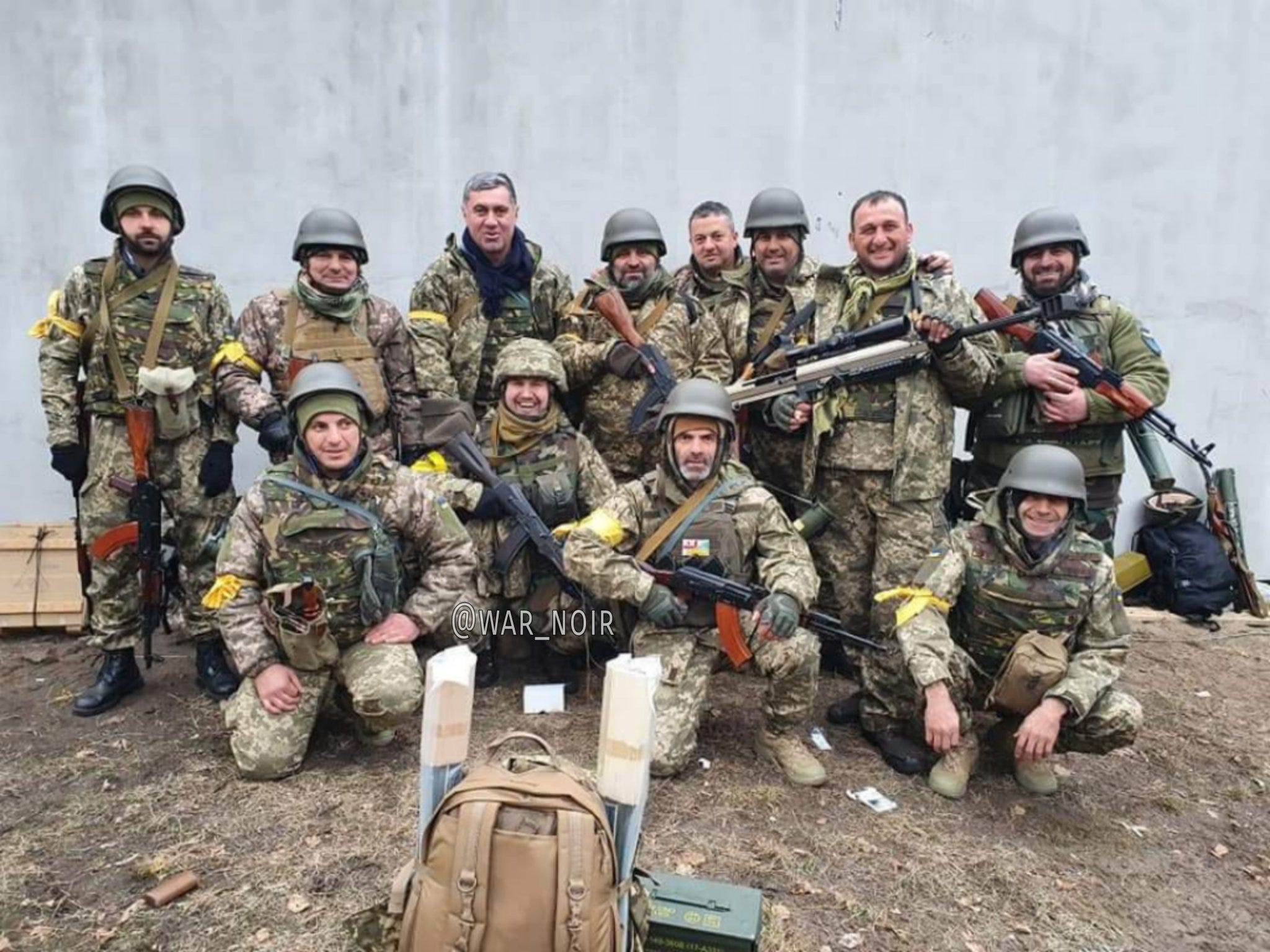
CNN – VOR News Image
Russia Proposes UN Resolution On Banning Weapons In Space, After Vetoing Similar UN-Japan Draft
It states that this should include deploying weapons “from space against Earth, and from Earth against objects in outer space.”
When Russia’s UN Ambassador Vassily Nebenzia rejected the United States-Japan draft, he warned the Security Council that it did not go far enough in outlawing all sorts of weapons in space.
The vetoed resolution only addressed weapons of mass destruction, including nuclear weapons, and made no mention of other weapons in space.
It would have urged all countries to refrain from developing or deploying nuclear weapons or other weapons of mass destruction in space, as prohibited by a 1967 international convention adopted by the United States and Russia, and to recognize the importance of verifying compliance.
Before the US-Japan resolution was voted on April 24, Russia and China presented an amendment calling on all countries, particularly those with space capabilities, “to prevent for all time the placement of weapons in outer space, and the threat of use of force in outer spaces.”
Seven countries voted in favor, seven against, and one abstention, and the amendment failed to receive the requisite nine “yes” votes in the 15-member Security Council.
Following the decision, US Ambassador Linda Thomas-Greenfield informed the council that Russian President Vladimir Putin has stated that Moscow has no intention of placing nuclear weapons in space.
“Today’s veto raises the question: why? Why, if you are obeying the rules, would you oppose a resolution that reinforces them? “What could you possibly be hiding?” she inquired. “It’s confusing. And it is a disgrace.”
AP – VOR News Image
Russia Proposes UN Resolution On Banning Weapons In Space, After Vetoing Similar UN-Japan Draft
Putin was responding to the White House’s revelation in February that Russia had acquired a “troubling” anti-satellite weapon capability, but such a weapon is not yet operational.
Vassily Nebenzia, Russia’s UN Ambassador, said after casting the veto that the US-Japan resolution cherry-picked weapons of mass devastation.
He emphasized that the US and its partners had already revealed plans to deploy weapons in outer space, which explains their activities.
Nebenzia also claimed that the United States has been opposing a Russian-Chinese proposal for a convention prohibiting the deployment of weapons in outer space since 2008.
Thomas-Greenfield accused Russia of undermining global treaties to prevent the spread of nuclear weapons, recklessly invoking “dangerous nuclear rhetoric,” abandoning several arms control obligations, and refusing to engage “in substantive discussions around arms control or risk reduction.”

The Sun – VOR News Image
Russia Proposes UN Resolution On Banning Weapons In Space, After Vetoing Similar UN-Japan Draft
Much of the Russian draft resolution is identical to the US-Japan text, including the wording aimed at averting an arms race in space.
It urges all countries, particularly those with significant space capabilities, “to actively contribute to the goal of the peaceful use of outer space and the prevention of an arms race in outer space.”
According to Thomas-Greenfield, the world is only beginning to realize “the catastrophic ramifications of a nuclear explosion in space.”
SOURCE – (AP)
World
Phones, Islamic Books And Currency Exchange. Some Businesses Are Making Money Out Of Taliban Rule

KABUL, Afghanistan Taliban – Yunis Safi, a Kabul businessman, understands how important it is to show off your phone if you want something done.
“In Afghanistan, your phone is your personality,” he remarked, beaming, his hands adorned with jewel-encrusted rings. One has an emerald, the other a large Russian diamond. “When you go to a meeting with the government, the better your phone, the more they respect you.”
Safi owns a phone business in the exclusive Shar-e-Naw area. An armed guard stands outside. The iPhone 15 Pro Max is now on store shelves, priced at $1,400. He has customers willing to part with this amount of money, which may surprise some, considering the country’s economic troubles and that more than half of the population relies on humanitarian help for survival.
Afghanistan’s finances were precarious even before the Taliban took power in 2021. The budget relied significantly on foreign help, and corruption was rampant. The seizure shattered Afghanistan’s economy, freezing billions of dollars in international finances and forcing tens of thousands of highly skilled Afghans to flee the country with their money.
AP – VOR News Image
Phones, Islamic Books And Currency Exchange. Some Businesses Are Making Money Out Of Taliban Rule
Despite the terrible conditions, some businesses benefit under the Taliban administration. Women are relegated to customers, however, because authorities have forbidden them from most jobs, including retail. None of Safi’s 78 employees are female.
He has tapped into a varied client base, including those eager for the latest iPhone release and those who prefer simple devices. The latter account for the majority of his sales and range in price from $20 to $200.
The Taliban used to target phone towers and threaten telecom companies, accusing them of working with the United States and other international forces to detect insurgent movements via mobile phone signals. Now, they’re investing in 4G mobile networks.
The Communications Ministry reports that 2 million new SIM cards have been issued in the last two years, and subscriber numbers are increasing. Enayatullah Alokozai, a ministry official, stated that the government is investing $100 million in telecom and has completely rebuilt hundreds of towers.
There are 22.7 million active SIM cards in a country with a population of 41 million. Ten million are for phone calls, with the remainder for mobile internet.
According to Trade Ministry estimates, phone imports have increased. More than 1,584 tons of phones entered Afghanistan in 2022. Last year, it weighed 1,895 tons.
Safi said he had many Taliban customers, and the younger ones prefer iPhones. “Of course, they need smartphones. They use social media and enjoy making videos. The iPhone offers stronger security than Samsung. The camera’s resolution, CPU, and memory are all improved. Afghans use smartphones like everyone else.”
Safi has the iPhone 15 Pro Max, an Apple Watch Ultra, and three automobiles.
Business was difficult shortly after the Taliban took power, but it is improving, according to Safi. “The people buying the new release iPhones are the ones with relatives abroad sending money to Afghanistan.”
AP – VOR News Image
Phones, Islamic Books And Currency Exchange. Some Businesses Are Making Money Out Of Taliban Rule
Remittances are a lifeline, but less than half of what they were before the Taliban took power and the financial system collapsed.
At Kabul’s rowdy Shahzada Market, hundreds of money changers clutch stacks of the local currency, the Afghani, and noisily hawk their wares. They occupy every floor, stairwell, corner, and cranny.
According to Abdul Rahman Zirak, a senior official at the money exchange market, $10 million changes hands every day. The diaspora sends largely U.S. cash to family, which they convert for Afghani.
Before the Taliban took control, there were more ways to donate money to Afghanistan. However, there are no longer any linkages to SWIFT or international banking, which is one of the main reasons why business is brisk in the market, he said.
“The work of money exchangers has increased and strengthened,” he stated. “Money transfers come from Canada, the U.S., Europe, Australia, Arab nations and other neighboring countries.”
Trade becomes extremely chaotic during the holidays. During the holy month of Ramadan, 20,000 people visited the market daily, and it took more than 90 minutes to enter, he claimed.
Our business may suffer if the restrictions are lifted and the assets are unfrozen. But I don’t see this happening. Many do not have bank accounts. Unemployment is rising, therefore people send money to Afghanistan. Our company will be needed for years to come.”
Irfanullah Arif, who owns Haqqani Books, a specialist retailer of Islamic manuscripts, is likewise pleased with his fortunes. His consumers are primarily religious school professors and pupils.
There are at least 20,000 madrasas in Afghanistan. The Taliban intends to build more. Last year, the supreme commander allegedly directed the recruiting of 100,000 madrassa teachers.
AP – VOR News Image
Phones, Islamic Books And Currency Exchange. Some Businesses Are Making Money Out Of Taliban Rule
While Arif’s business suffered, along with everyone else’s, from the chaos that followed the takeover, there was another cause. “All the students left the madrassas and went to work for the (Taliban) government,” Arif claimed.
Success, however, comes with a price. Arif imports everything, and the Taliban are just concerned with collecting revenue, even from Islamic literature.
Arif pays a tax of 170 Afghanis ($2.36) for a carton of 100 books, with a shipping cost of 500 Afghanis ($6.95). His bookstore’s taxes have increased under the Taliban administration.
“That’s why books are expensive in Afghanistan,” he sighed. “With the increase of madrassas, our trade has gone up, but so have the taxes.”
SOURCE – (AP)
-
Entertainment5 months ago
Robert Downey Jr. Won’t Be Returning To The Marvel Cinematic Universe As Tony Stark
-
Politics5 months ago
Unveiling the Power and Influence of The Conservative Treehouse
-
Sports4 months ago
Saints’ Aggressive Play-Calling Ends Up Coming Back To Hurt Them In Loss To Rams
-
Celebrity5 months ago
Norman Lear, Producer Of TV’s ‘All In The Family’ And Influential Liberal Advocate, Has Died At 101
-
Innovation5 months ago
Sony Debuts First PS5 Controller For Disabled Gamers
-
Business4 months ago
Nike Says It Will Cut $2 Billion In Costs In A Major Warning For Consumers

